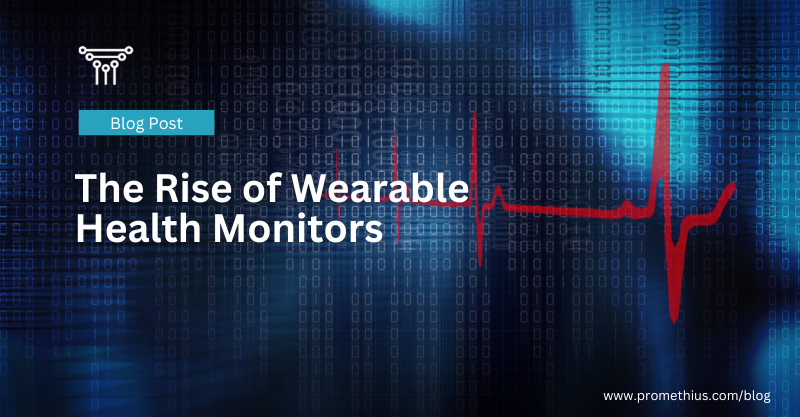The Rise of Wearable Health Monitors

Revolutionizing Personal Health Management
In the age of digital innovation, wearable health monitors have emerged as transformative tools in personal health management. These sophisticated devices, which can range from smartwatches to fitness trackers and medical-grade sensors, are designed to collect and analyze a plethora of health data, providing users with real-time insights into their well-being.
More...
The Evolution of Wearable Health Technology
Wearable health monitors have come a long way since their inception. Early iterations, such as pedometers and basic heart rate monitors, offered limited functionality and were primarily used by athletes. However, advancements in technology have paved the way for more comprehensive devices capable of tracking a wide range of physiological metrics. Modern wearables can monitor heart rate variability, blood oxygen levels, sleep patterns, and they can even detect irregular heartbeats, all with remarkable accuracy.
Benefits of Wearable Health Monitors
The widespread adoption of wearable health monitors is largely due to the numerous benefits they offer. Firstly, they empower individuals to take a proactive approach to their health. By providing continuous feedback, users can make informed decisions about their lifestyle choices, such as diet, exercise, and sleep. This personalized data helps in identifying patterns and making adjustments to improve overall health.
Moreover, wearable health monitors serve as valuable tools for healthcare professionals. The data collected by these devices can be shared with doctors, enabling them to monitor patients remotely and make more accurate diagnoses. This is particularly beneficial for managing chronic conditions, such as diabetes and hypertension, where regular monitoring is crucial.

Enhancing Fitness and Athletic Performance
For fitness enthusiasts and athletes, wearable health monitors offer a wealth of information to optimize performance. These devices can track workouts, measure calorie expenditure, and analyze recovery times. By understanding their body's response to different types of exercise, users can tailor their training programs to achieve peak performance. Additionally, wearables often include features such as GPS tracking and virtual coaching, providing users with the tools and motivation to reach their fitness goals.
Improving Mental Health and Well-being
Wearable health monitors are not limited to physical health; they also play a significant role in mental well-being. Many devices include features that track stress levels and provide guided breathing exercises to help manage anxiety. Sleep monitoring capabilities are especially valuable, as poor sleep quality is closely linked to mental health issues. By analyzing sleep patterns, users can identify factors that may be disrupting their rest and take steps to improve their sleep hygiene.
Challenges and Considerations
Despite their numerous advantages, wearable health monitors are not without challenges. Privacy concerns are paramount, as these devices collect sensitive health data. Ensuring that this information is secure and used responsibly is critical. Additionally, the accuracy of wearable devices can vary, and users should be aware of potential discrepancies in the data.
Another consideration is the dependency on technology. While wearables provide valuable insights, they should not replace professional medical advice. Users must strike a balance between utilizing these tools and consulting healthcare providers for comprehensive health management.
The Future of Wearable Health Monitors
The future of wearable health monitors is promising, with ongoing advancements poised to enhance their capabilities further. Integrating artificial intelligence and machine learning algorithms can provide even more personalized and predictive health insights. Moreover, the development of non-invasive sensors and improved battery life will make these devices more convenient and accessible.
In conclusion, wearable health monitors are revolutionizing the way we approach personal health and wellness. By offering real-time data and actionable insights, they empower individuals to take control of their health and make informed decisions. As technology continues to evolve, these devices will undoubtedly play an increasingly vital role in preventive healthcare and overall well-being.
